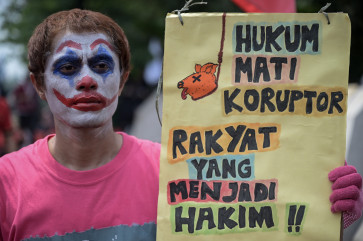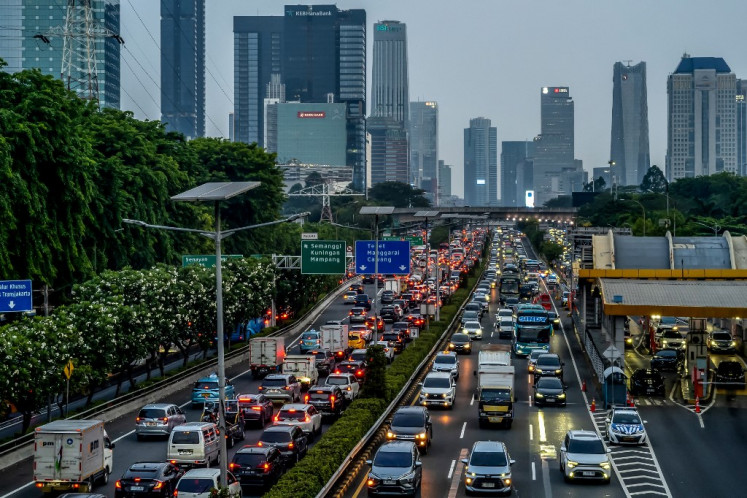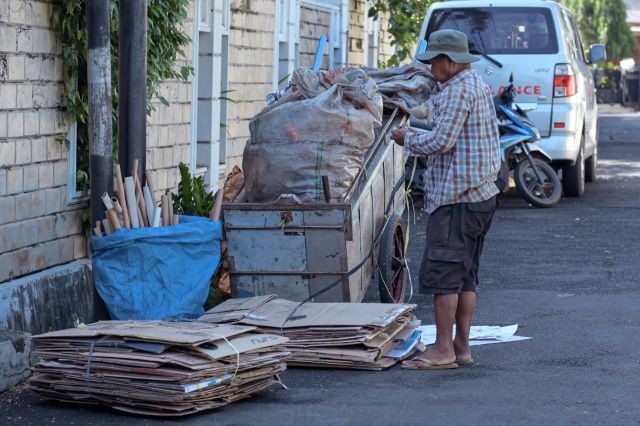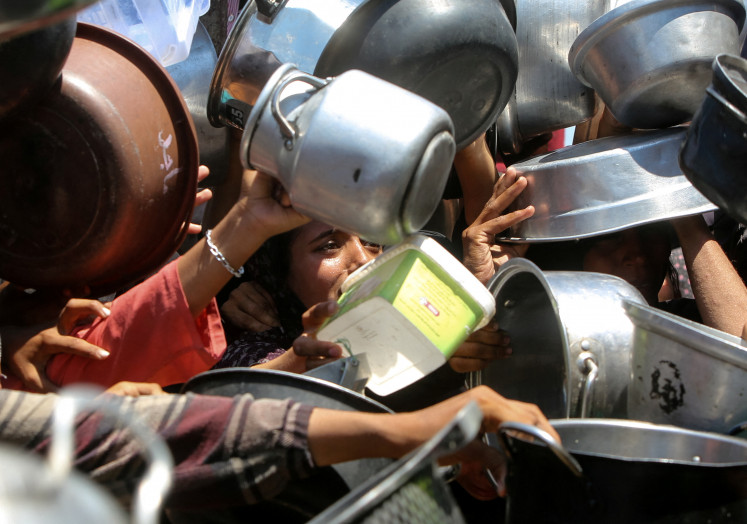Popular Reads
Top Results
Can't find what you're looking for?
View all search resultsPopular Reads
Top Results
Can't find what you're looking for?
View all search resultsNational Alms Agency tasked with collection, distribution of ‘zakat’
The House of Representatives passed on Thursday the zakat (Islamic mandatory alms) management bill into law in the hopes that zakat will play a greater role in supporting the government’s efforts to alleviate poverty
Change text size
Gift Premium Articles
to Anyone
T
he House of Representatives passed on Thursday the zakat (Islamic mandatory alms) management bill into law in the hopes that zakat will play a greater role in supporting the government’s efforts to alleviate poverty.
Democratic Party lawmaker Gondo Radityo Gambiro, who leads the House’s special committee for the bill, said that among the crucial points in the law was the new role of the government-owned National Alms Agency (Baznas) as the coordinator and supervisor of zakat collection and distribution activities in the country.
This role, he said, would help the government integrate the zakat management system in Indonesia which had been organized independently by countless registered and unregistered zakat collection organizations scattered around the country, and ensure that the zakat funds would also be used to empower the poor.
“The law wants to ensure that zakat [alms funds] will not only be used to fulfill the basic needs of the poor but also help them establish productive activities that can help them break free of the vicious cycle of poverty,” he said in front of the House of Representatives’ plenary session.
Paying alms is one of the five principles of Islam. Every adult Muslim must allocate some proportion of their annual revenue or amount of wealth for wealth zakat, or zakat maal, if it exceeds a certain base amount set in Islamic teachings.
Despite the great potential of zakat funds in Indonesia, the world’s largest Muslim country, there currently is no single agency that coordinates and documents the records of all the zakat foundations in the country in addition to the many unrecognized alms initiatives.
Earlier this year, Baznas said that potentially, zakat funds in Indonesia could reach around Rp 217 trillion (US$24.5 billion) annually, much higher than the 1.5 trillion collected by alms management organizations in the country last year.
There are currently 19 major zakat foundations in Indonesia, including Baznas, Dompet Dhuafa (Wallet for the Poor) and the Community Caring Justice Post.
According to the new alms law, the public is still allowed to establish zakat collection agencies under Baznas supervision as long as they meet all administrative requirements, including the possession of a recommendation from Baznas and technical ability to run their alms collection and distribution programs.
Aside from zakat, the agencies can also collect infaq (donations) and other forms of contribution.
During the plenary session, House Deputy Speaker Priyo Budi Santoso, however, had to delay the session for almost 30 minutes after lawmakers from the Islamic-based Prosperous Justice Party (PKS) questioned an article in the bill which stipulates that alms collection and distribution can only be run by a public organization which has a legal entity.
“This ruling will force mosque congregations and other community-based alms management groups to stop their alms collection and distribution activities since they have no resources and capacity to establish a public organization if they want to resume their social activities,” Surahman Hidayat said.
The deadlock finally ended after the leaders of the House’s nine factions agreed to extend the time given for existing alms collection organizations to comply with the new administrative requirements from one to five years.
University of Indonesia Islamic economic expert Mustafa Edwin Nasution welcomed the new zakat law but said that the most important thing the government must do was to encourage small alms foundations to adopt “managerial recipes” implemented by the major and successful ones so that they could collectively gather and distribute increasingly more zakat funds.
Key articles in the ‘zakat’ management law
Baznas (the National Alms Agency) will design, execute and supervise the collection, distribution and use of zakat funds.
• Baznas consists of 11 members, with three representing the government and eight representing clerics, professionals and Muslim figures.
• The public can establish alms foundations under approval from the Religious Affairs Ministry and Baznas.
• Individuals or business entities can submit their zakat payment receipts for tax deduction purposes.
• Alms foundations can allocate some zakat funds to help finance productive activities for low-income people but only after fulfilling the basic needs of zakat recipients.










